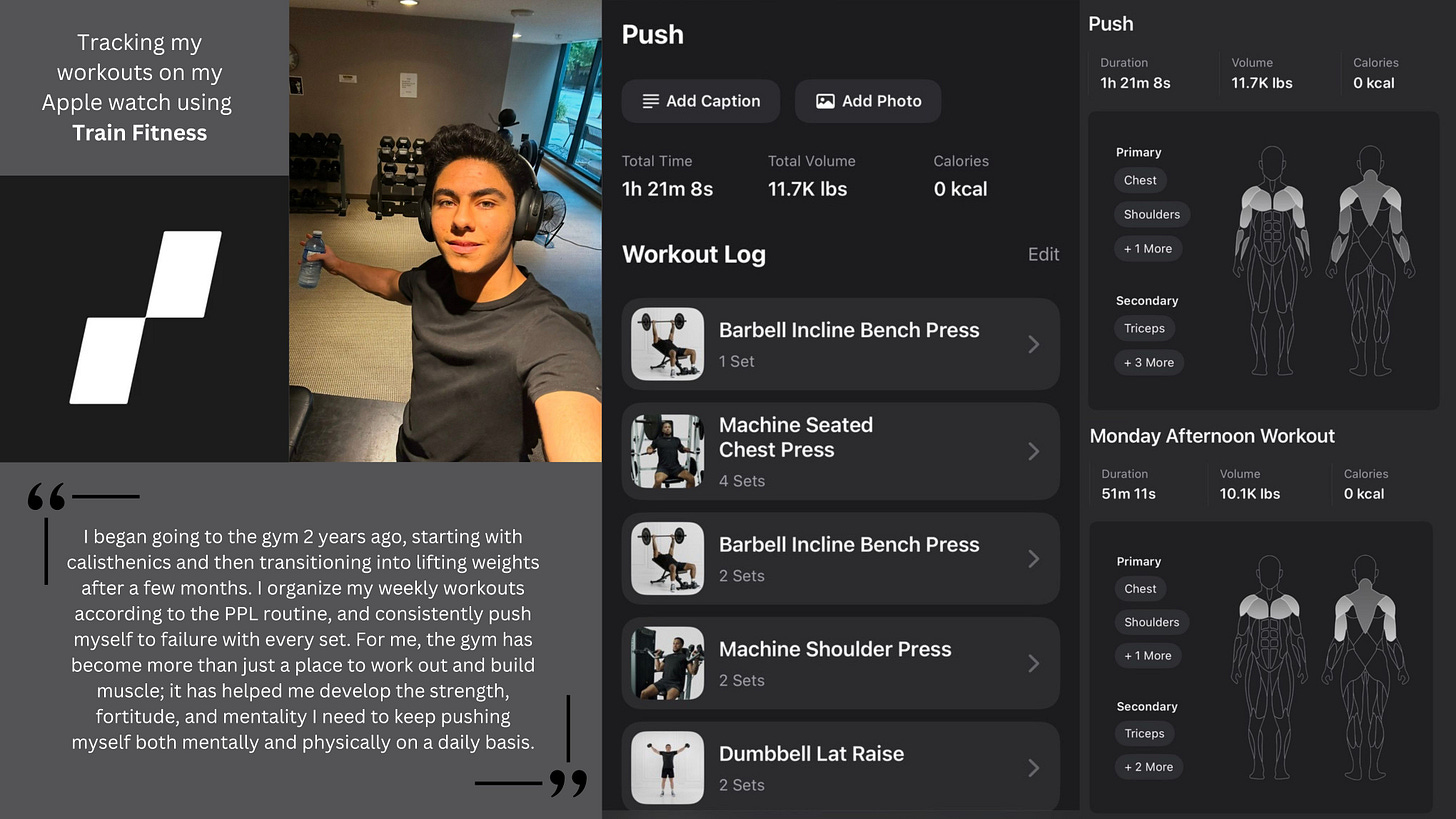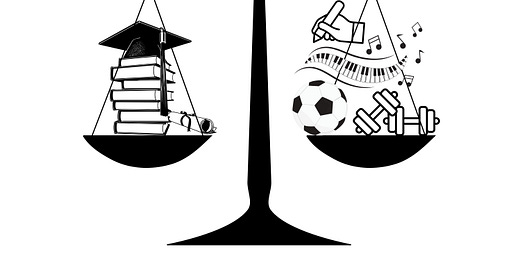I’m an undergraduate neuroscience student passionate about playing football, performing research and writing articles, playing the piano, and going to the gym. With a busy schedule of classes, labs, and clubs to attend at university, I understand and value the importance of managing my time to be able to spend adequate time on my hobbies weekly.
Gym & Football
I go to the gym consistently for an hour every weekday before or after classes to ensure that I get my daily workout in. For extra motivation, I log my workouts on my Apple watch with an app called Train Fitness to track progress and often go with friends to workout together. I follow the PPL (Push/Pull/Legs) workout routine to engage different muscle groups on different days, which by far has been the most effective and balanced workout routine for me.

For physical activity during the weekend, I typically play my favourite sport–football–on both days in intramural teams at my university in organized matches. I’ve been playing football since I was eight and played on my high school’s senior varsity team, becoming provincial champions of British Columbia in my last year. The energy I get from playing the sport is at times inexplicable. I can’t help but appreciate the many lessons and skills it has taught me to not only become a better team player, but also a better individual who can lead and inspire on and off the pitch. Maintaining this consistent exercise plan while getting a workout every day has been one of my central goals since I started university and is a dopamine booster like no other, fuelling my passions in other areas as well.
Research & Article Writing
Researching and writing articles is a hobby that I thoroughly enjoy and find incredibly rewarding. I see it as an art—the art of relentlessly learning and discovering more about the universe. And this doesn’t just involve what I read in articles published in journals like Nature or the New England Journal of Medicine. My passion for research stems from what I learn through reading these articles to form new ideas about certain scientific topics and then writing about these ideas on platforms like Medium and Substack. Not only does this help me better learn complex concepts from what I read, but it allows me to express my opinions on them and become more intimate and innovative with my own research.
I’ve written multiple articles and eBooks on a variety of topics in science, and this could be a tiring task if not managed properly. This was exactly the case for me when I wrote my first scientific paper as part of a summer research program for high school students a few years ago: I worked on it a ton on some days, and on other days I didn’t work on it at all. Because of this inconsistency, I was super burned out by the time I submitted it and the quality of my paper diminished a bit towards the end. Ever since, I’ve gotten into the habit of planning and spacing out what I write. I work on an article in focused periods of an hour or two every day and set a reasonable due date to complete it by planning out what sections to work on each time. This has led to great improvements in the quality of my writing and has made me a much better scientific writer overall.
Piano
Playing the piano has been one of my favourite things to do since childhood. In addition to the pure enjoyment that comes with playing beautiful melodies in sync with rich and resonant harmonies, the piano provides me with some peace of mind, enhances my focus, and even makes me think sharper when doing other tasks. Because of this, I always try to implement a bit of piano into my life whenever I can. The amount of time I spend playing per month varies as I often put in extra time when trying to learn a new piece and, on the other hand, I may not always have access to a piano at university. But whenever I have the opportunity to play, I will play without hesitation. Even if it’s just for 30 minutes at a time, little by little I make progress on learning a new piece until I can play it continuously and beautifully in one go. Especially with the piano, staying consistent and learning the different verses, choruses, and bridges in small chunks is the key to mastery. It’s very easy to lose playing quality or forget how to play a song if you neglect or give up on practicing when you can!

Tools I use to manage my hobbies
To manage and time block all my work and hobbies I typically use Google Calendar, and I recently began to use Notion as well (a big shout-out to
for getting me into the habit of using this incredible platform!) to track tasks and keep a record of my progress and ideas–whether that be what topic to research and write about next or what new song to learn on the piano. There are so many tools out there that you can implement. But the key thing to remember with any tool you use is to plan ahead, make a weekly schedule of the hobbies you want to work on, what you plan to achieve every week, and how much time you intend to spend on each hobby to maintain balance and consistency over time.Keep it real with whatever you do and get into the habit of setting clear objectives to balance your hobbies with your professional/academic life.





